Your burning questions answered.

—
For THE FUNKO BATMAN ’66 INDEX of stories, click here.
—
OK, so by now you almost certainly know that Funko’s first offering in its new 3.75-inch-scale Batman ’66 action-figure line — the Batmobile with Batman and Robin — will be out in May. (And if you want those details, like pricing — and you do — click here.)
But I am always fascinated by what goes into something like this: How do they make those wonderful toys, as it were.
And then there are the questions of why a company chooses a certain approach. For example, the Funko Batmobile, as many fans online have noticed, is not exactly a scale model of the George Barris original. Why is that?
For me the answer’s obvious: It’s a stylized toy. But there’s another, more practical answer. So here’s Batmobile designer Amanda Brock with that and more:
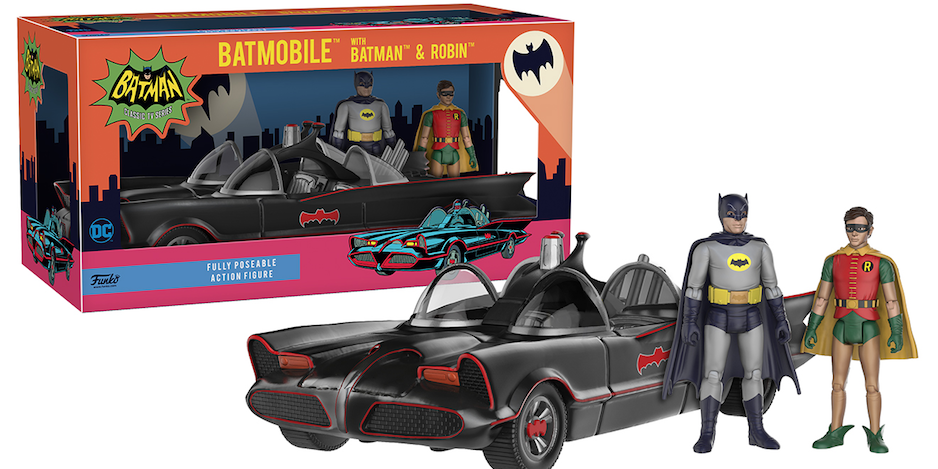
Dan Greenfield: Tell us a little about your connection to the Batman TV show. Are you a fan or was this just another gig for you?
Amanda Brock: I’ve actually never watched the Batman TV show. I grew up in the ’90s so I was a fan of Batman: The Animated Series. Luckily I had designers Mike Martin and Reis O’Brien, who are big fans of the Batman TV series and were able to give me feedback.
Dan: Walk us through how you designed this version of the Batmobile.
Amanda: This isn’t the first time I sculpted the 1966 Batmobile. I made the super simplified Dorbz version about a year ago. (Click here.) I wasn’t able to use a lot of pieces from the Dorbz Ride, but some of the overall shapes are the same. I build vehicles with very primitive shapes and then refine as I go.
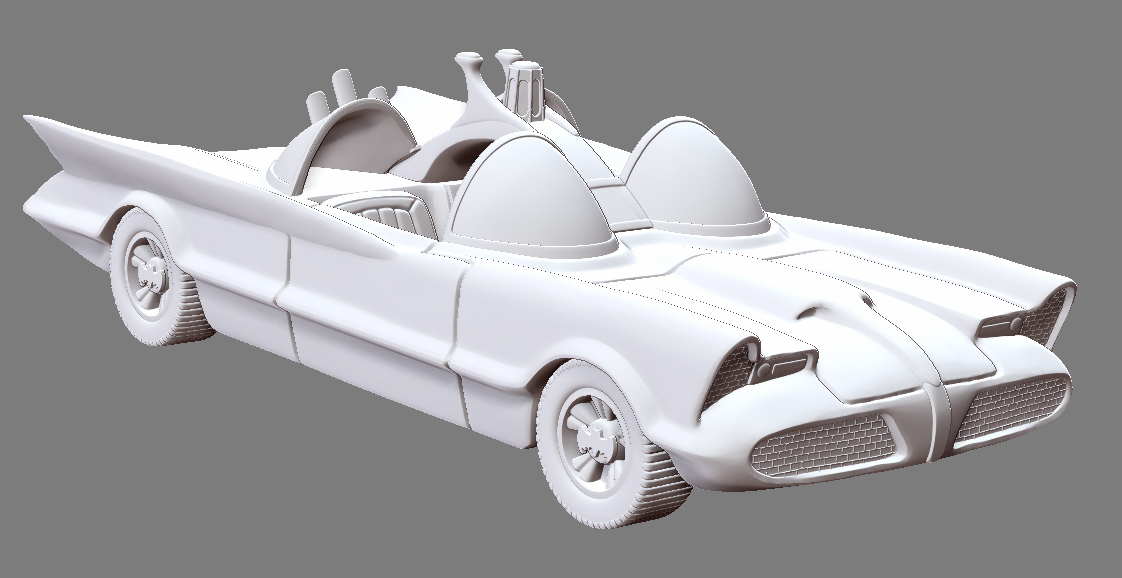
Dan: It’s an overused term but the 1966 Batmobile is indeed iconic. Everybody knows it. What was the biggest challenge in crafting one at this scale?
Amanda: The 1966 Batmobile is a very long car. In order to keep its footprint relatively small while still being able to fit an action figure in each seat, I needed to squish it lengthwise without losing the iconic shapes. I had to go through several iterations of that before we were happy with it.
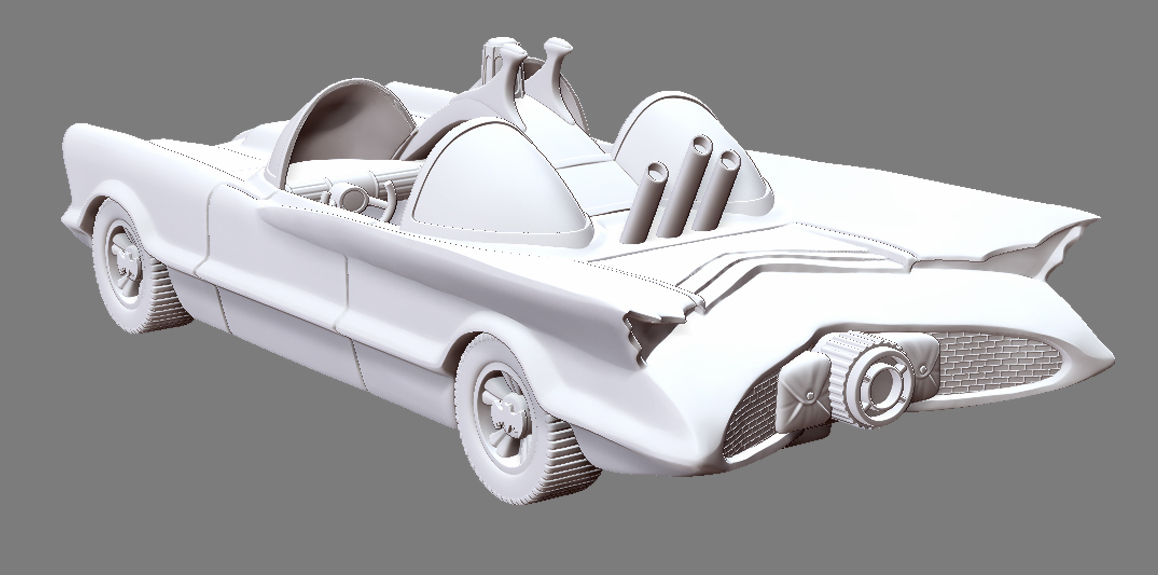
Dan: Why did the shape of the Batmobile have to be adjusted rather than keep the normal dimensions? Dorbz is obvious but why for this project?
Amanda: Since these are ultimately going to sit on shelves, we had to think about shelf space and box size. At the size I had originally made it, it was over a foot long. I was able to shrink it down to a little over 10 inches while keeping its original charm.
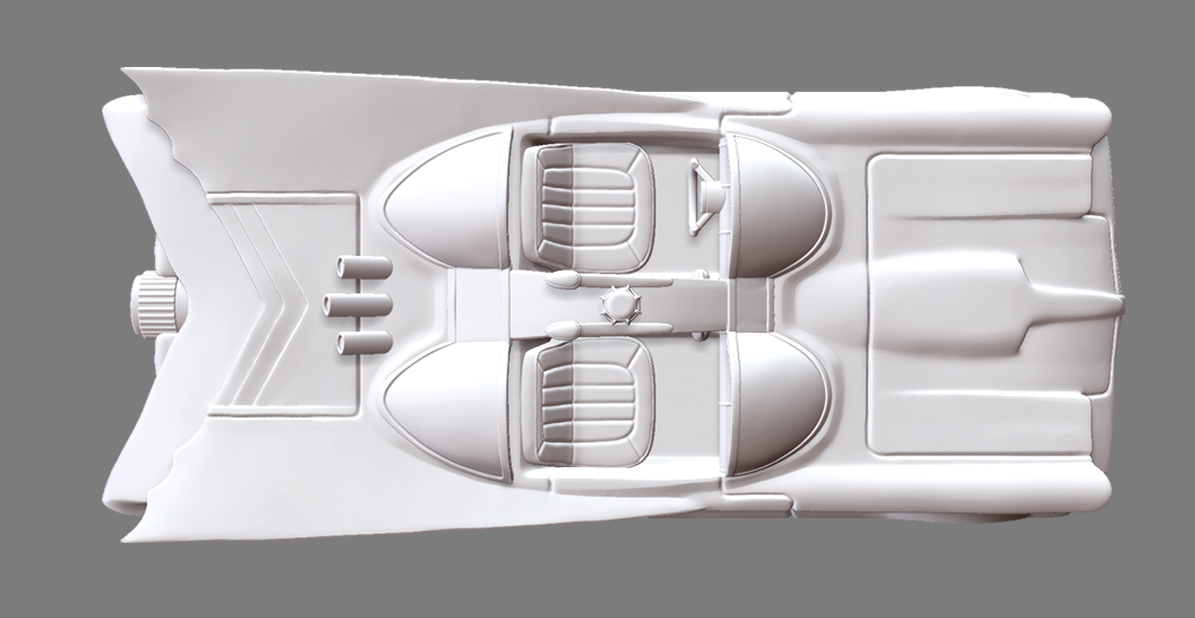
Dan: What made you decide to keep what you kept — and eliminate what you didn’t?
Amanda: Well the Batphone was a no-brainer. Even though I haven’t watched the show (aside from some YouTube clips) I love the Batphone. When I eliminate detail, especially on something that’s supposed to be more realistic, I will zoom out until its final size is on my screen. If there’s a detail that I can’t see at that size, I won’t add it.
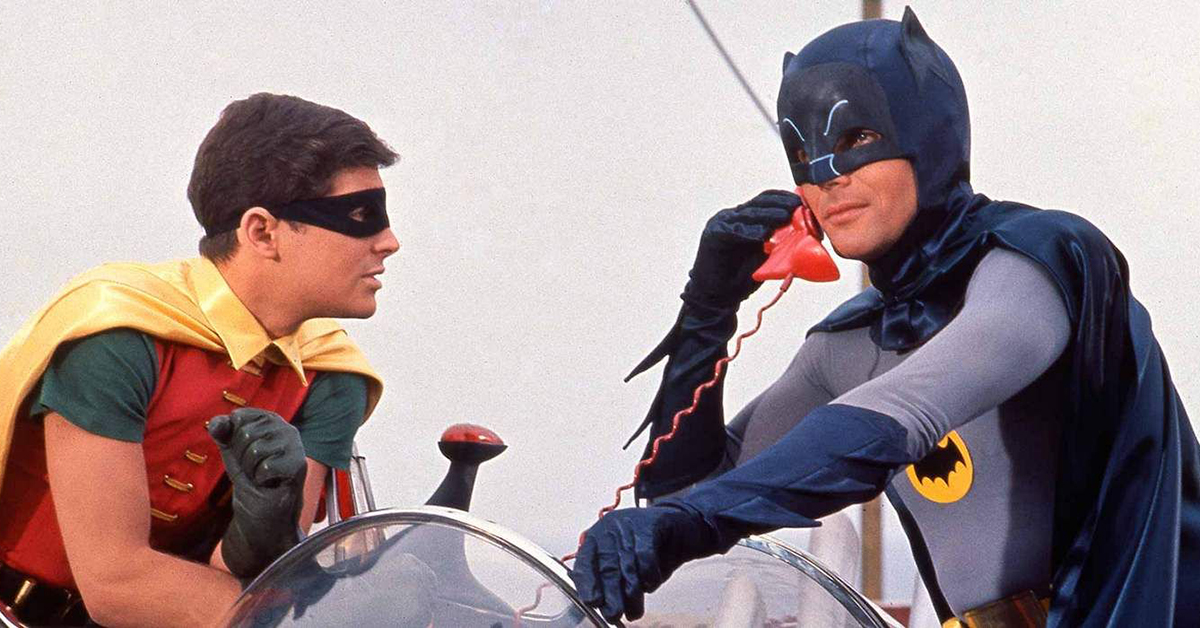
Dan: What’s the biggest misconception fans have about your work?
Amanda: I think people in general have a lot of misconceptions about how work is made in 3D. It’s not as simple as pushing a few buttons and suddenly a Batmobile appears on your screen. Things like this take hours upon hours of sculpting (just like sculpting with your hands) and years of practice.
Dan: This is the way fans think: “Ooh, the Batmobile! That’s great! I want a Batcycle too!” What vehicle would you want to do next if Funko gave the green light?
Amanda: I love Batgirl’s cycle the most. The tulle frills are absolutely ridiculous and amazing. I think it would be fun to sculpt.
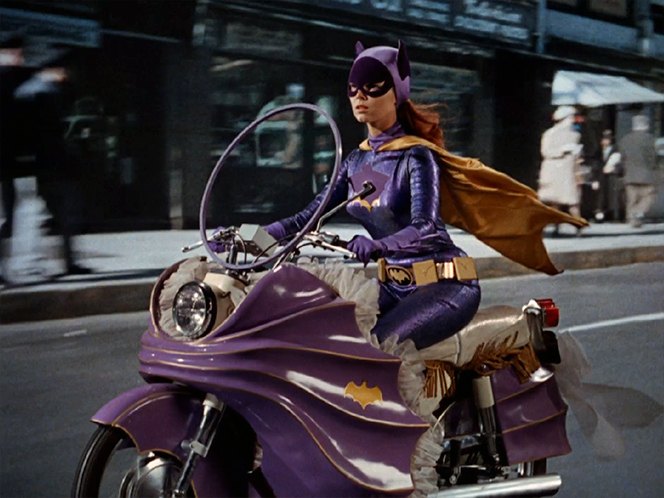
Dan: Of all the figures you’ve seen so far, which is your favorite? Why?
Amanda: Dang, that’s hard. Shelley (Rappleye) and Krista (Wade) did such a killer job on all of the sculpts. I guess I’d have to say Batman. Krista really captured what we lovingly call his “dad-bod.”
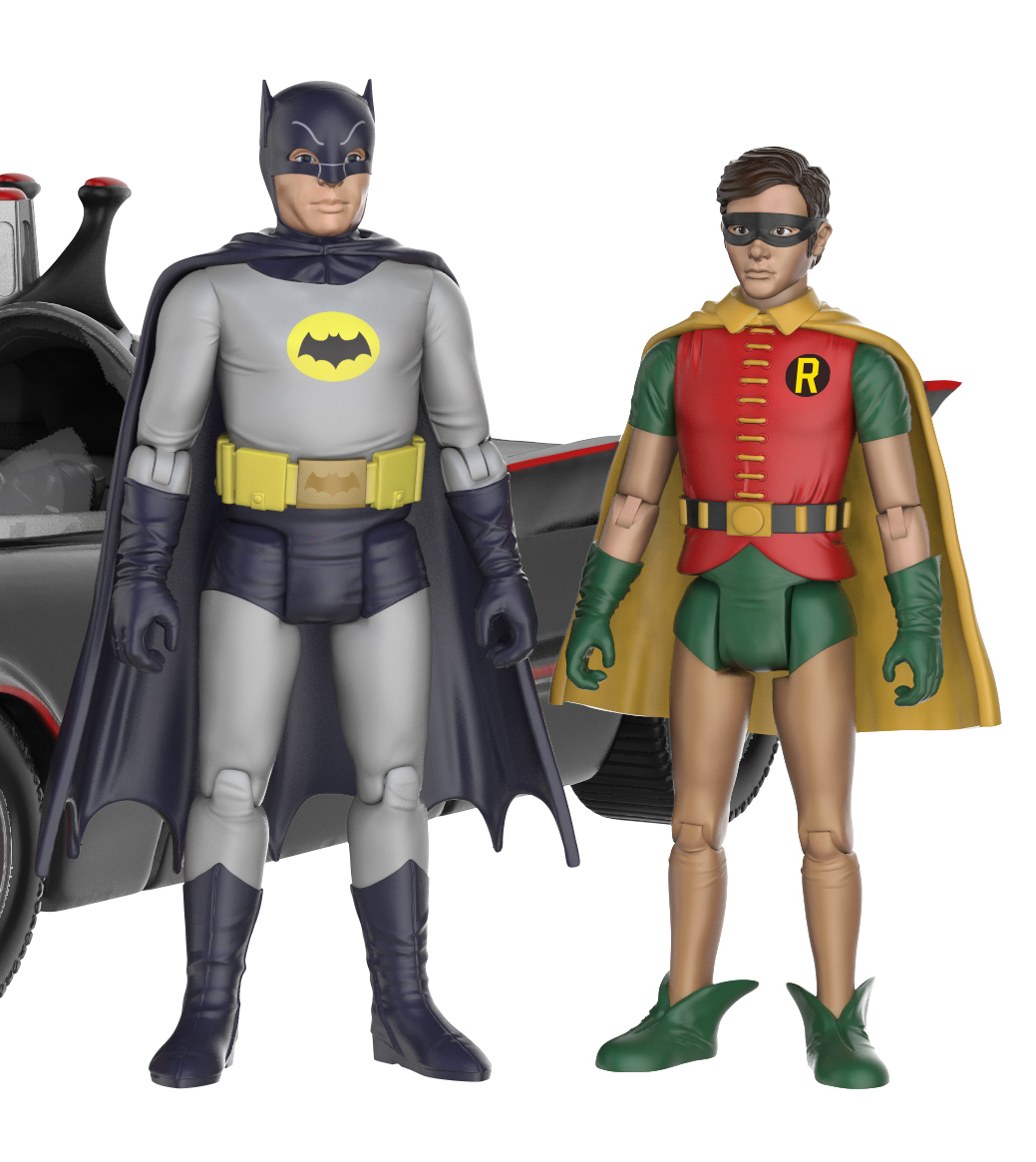
—
For THE FUNKO BATMAN ’66 INDEX of stories, click here.
—

June 14, 2017
Would you be interested in sculpting the vehicle from Corvette Summer? Of course you would be paid well for your talents